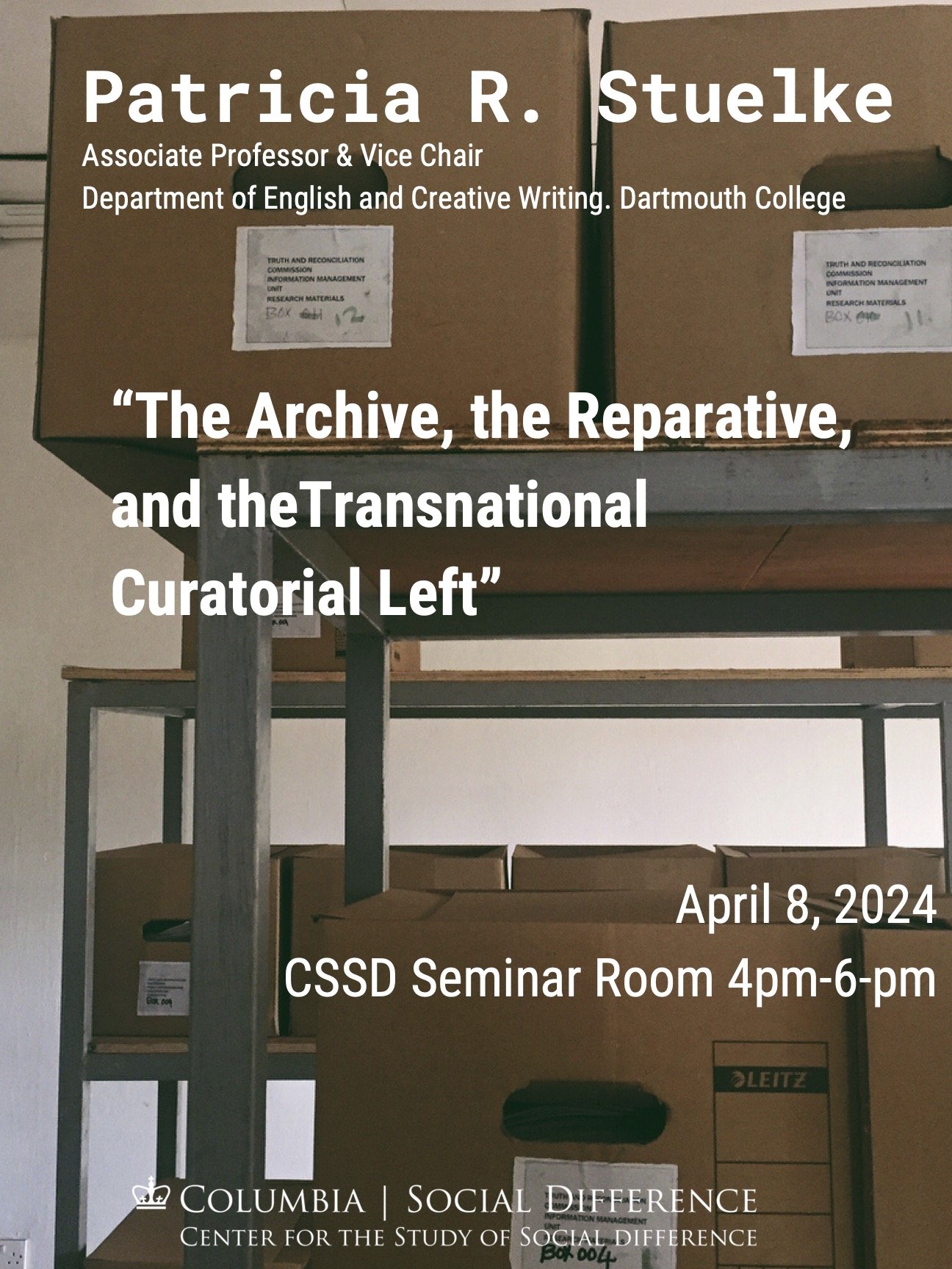
Dr. Karen O'Connell & the Gendering of "Stress"
On June 10, Dr. Karen O Connell from the University of Technology, Sydney, will join the Recovery Working Group and share her sabbatical research about the gendering of “stressˮ and how we use, or misuse, the concepts of stress and trauma to compensate women for gendered harms (especially sex discrimination and sexual harassment) or to render certain harms invisible.
Her initial reading shows that stress studies are grounded in assumptions about the inherent stress levels of various activities that donʼt match womenʼs lived experience. This work will also explore whether a compound concept such as “stressˮ can be used to encourage a more intersectional approach to harm in law.
More information on this event soon.

The Archive, the Reparative, and the Transnational Curatorial Left
The Recovery Working Group will be hosting Professor Patricia R. Stuelke, Associate Professor and Vice Chair of the Department of English and Creative Writing at Dartmouth College, on April 8, 2024 for a seminar titled “The Archive, the Reparative, and the Transnational Curatorial Left.”
When: April 8, 2024
4-6 PM
Where: CSSD Seminar Room
752 Schermerhorn Extension, CU
Attendance for this event is limited to Working Group members and invited guests.

Sensitive Subjects: Vulnerability, Care, and Chronic Illness
The Recovery Working Group welcomes Kalindi Vora, Professor of Ethnicity, Race, and Migration, and Women’s Gender and Sexuality Studies at Yale University, to discuss her new research project on autoimmunity as a way to get at chronicity, or the enduring conditions from which there is no recovery and which highlight the shortfalls of conventional medicine as a modality of care.
When: March 4, 2024
6-8 PM
Where: Schermerhorn Extension, Room 752
Description: This talk presents ethnographic evidence that attention to sensitivity, in both patients and health care providers, can amplify the valuable knowledge people with chronic illness have about health, care, and medicine that physicians may not.
Sensitivity is often equated with weakness in the United States. However, like the tiny lungs of the canary in the coal mine, which take on atmospheric gasses at many times the rate of humans, sensitivity can be a harbinger of what is to come for everyone else. The canary served as a warning of a toxic environment. Sensitive humans indicate what kind of social, environmental and medical conditions may eventually become unlivable for everyone else as well. Their knowledge can also include information for how to change our shared health environment for the better. Medicine, both conventional and alternative practices, is trying to keep up with unprecedented numbers of chronically ill patients. Many people are engaging in their own research and self-treatment and sharing their experience with communities online. In these practices online we see another side of the story of America’s shrinking state support for healthcare. We also see how the lure of ever-present internet advice, both information and misinformation, has changed our experiences of diagnosis and care.
This event is open to all Recovery Working Group Members and invited guests.

From Cynegetic Power to Cryopolitics: Hypotheses on the Biopolitics of Virus Hunters
Lecture by Frédéric Keck, École des Hautes Études en Sciences Sociales co-organized by the Recovery working group.

Feminist Intersectional Science and Technology Studies (FISTS) Conference
Conference Panel: With and Against Technoscience in the Aftermath

Conference Keynote: With and Against Technoscience in the Aftermath | Professor M. Murphy (UToronto)
Join us for our first Feminist Intersectional Science and Technology Studies Conference



